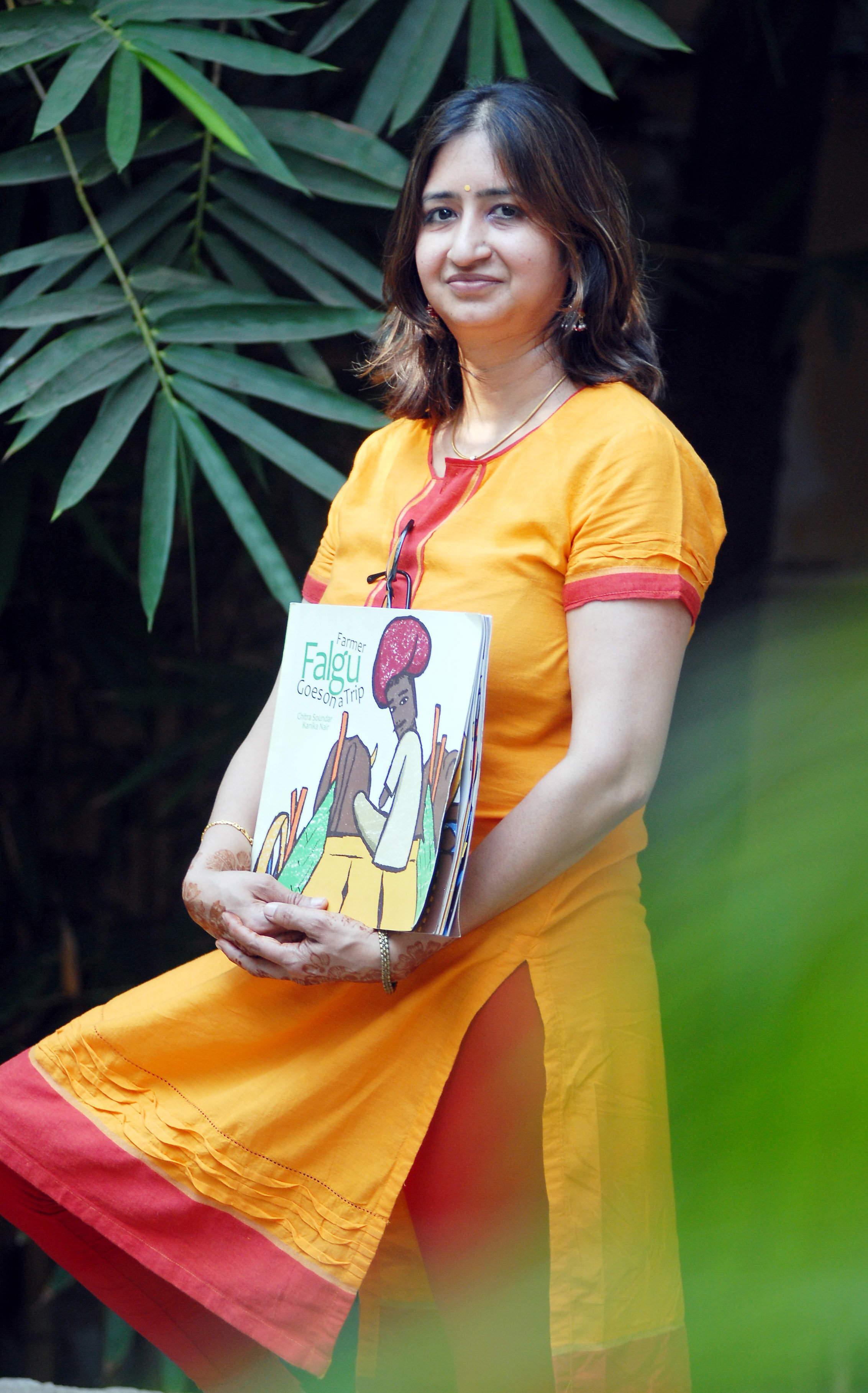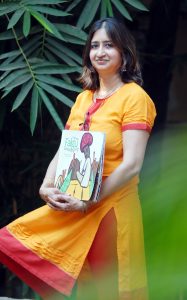

How did you decide which festivals and events Farmer Falgu would attend from the many options available?
When the first two books of Farmer Falgu were published, I created many activities for Sankaranthi, the harvest festival. That’s when I discovered the kite festival that happens in Rajasthan during this time and hence I thought it would be fun for Farmer Falgu and his daughter to fly kites.
Farmer Falgu is ever the optimist, why do you think that’s important to have a character like that in children’s literature?
Farmer Falgu takes after my grandmother and her advice for me as a child – always see the positive side of things. As a child, I grew up thanking about my blessings than worrying about what I didn’t have. Children who learn resilience at a young age are able to cope with disappointments better and they will keep trying until they achieve their goal. Telling this in stories will help children understand through another character without preaching to them.
In Farmer Falgu Goes to the Kumbh Mela, was it a conscious decision to show him being kind even when it meant losing out on something he’d been looking forward to?
I think in today’s world we all need to think outside our own needs. Farmer Falgu cannot walk past someone who has fallen down or is lost, just to get to his destination. That’s not the kind of person he is. It actually has the underlying motto from Bhagavad Gita – Do your duty, do not expect results. And that’s what he does too. A hero is someone who is kind and courageous despite the outcome and not because of the outcome and hence for me Farmer Falgu is kind and considerate first and foremost.
And finally, did you always want Farmer Falgu to be a series or had you only planned for one book initially?
At first it was only one story I sent to Karadi Tales. And then the second one came to me and Karadi Tales agreed to publish it. The series idea was from Shobha, our publisher who loves Farmer Falgu as much as I do and wanted more stories for him.




